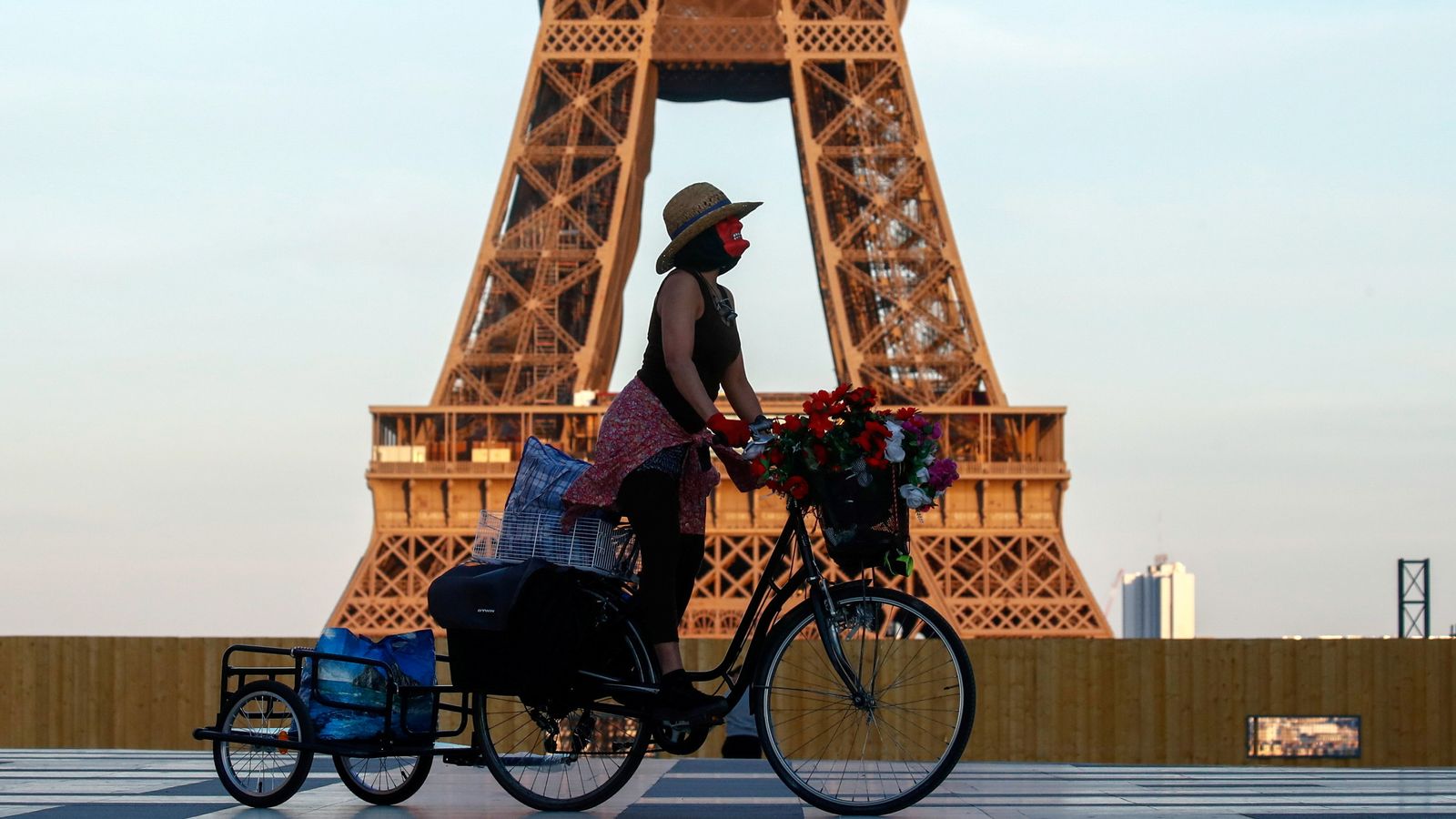British tourists fully vaccinated against coronavirus and with proof of a negative test will be able to enter France without needing a “compelling reason”.
Under new border rules, people who are completely inoculated – defined as two weeks after having the second dose of an EU-approved COVID-19 vaccine, which covers all jabs currently in use in the UK – will be able to travel to the country and use the NHS app as evidence of their status.
Latest coronavirus updates from the UK and around the world
Please use Chrome browser for a more accessible video player
Children accompanying vaccinated adults will not need to have a coronavirus jab but must prove a negative test result.
Although there is no specific age cut-off point, it is thought this will only apply to youngsters under 11, which will cause issues for parents with older children, who are unlikely to receive both jabs before the end of the summer.
UK travellers with only one dose, or who are unvaccinated, must isolate for seven days, provide proof of a negative test result on arrival and have a “compelling reason” for visiting.
The French government has also announced it is removing the need for coronavirus tests for vaccinated EU citizens, when the rules come into effect on 9 June.
However, France remains on the UK’s amber list, which means returning Britons, regardless of vaccination status, must self-isolate at home for 10 days as part of coronavirus restrictions.
People have also been told they should not travel to countries in this category.
It comes as the British government tightened its rules on travel abroad with the controversial decision to remove Portugal from the green list of quarantine-free destinations, causing a headache for holidaymakers.
Seven countries are also being moved to the red list – Afghanistan, Bahrain, Costa Rica, Egypt, Sudan, Trinidad and Tobago, and Sri Lanka.
The Department for Transport (DfT) said the steps were being taken “to safeguard public health against variants of concern and protect our vaccine rollout”.
Transport Secretary Grant Shapps said it was “a difficult decision” and Portugal was downgraded because the government wants to give the UK “the best possible chance of unlocking domestically” on 21 June.
He cited concerns over the emerging Nepal mutation of the Indian variant for the move.






















